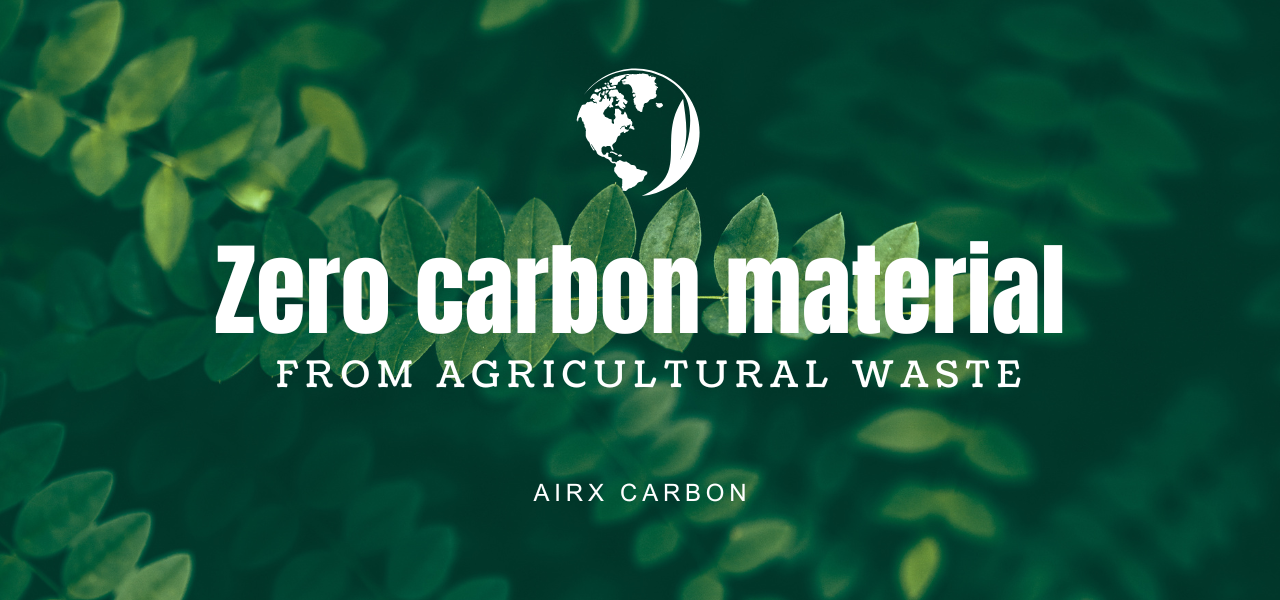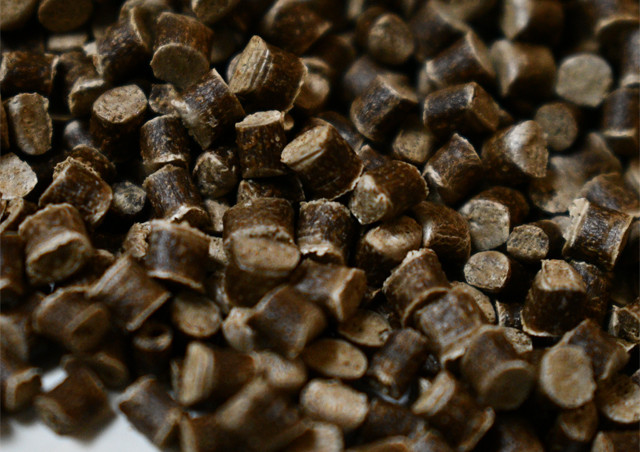ZERO-CARBON MATERIAL FROM AGRICULTURAL WASTE

Can leftover crops fight climate change? Discover how agricultural waste is being transformed into revolutionary zero-carbon materials. This article explores the potential of these sustainable alternatives, their environmental benefits, and how they could reshape various industries.
What are Zero-Carbon Materials?
The Intergovernmental Panel on Climate Change (IPCC) reports a staggering 1.1°C rise in global temperatures since pre-industrial times, with construction and manufacturing industries being major contributors.
This is where zero-carbon materials emerge as a game-changer. These are materials with a net-zero carbon footprint across their entire lifecycle – from sourcing raw materials to production, use, and end-of-life. They hold immense potential to reduce greenhouse gas emissions significantly.
Imagine building houses with bricks that absorb carbon instead of releasing it! Zero-carbon materials encompass a range of innovative solutions. One exciting example is plant-based plastic. Derived from renewable resources, these plastics offer a sustainable alternative to petroleum-based plastics, a major source of pollution.
Beyond reducing emissions, some zero-carbon materials, like those incorporating fast-growing bamboo, can actually act as carbon sinks, actively removing carbon dioxide from the atmosphere.
The development and adoption of zero-carbon materials are crucial steps towards a sustainable future. By embracing these innovations, we can build a cleaner world and mitigate the devastating effects of climate change.
Truly Zero-Carbon Materials from Agriculture Waste
Our planet faces a growing climate crisis, and the construction and manufacturing industries are significant contributors. But what if the solution lies hidden in plain sight – our agricultural waste?
Unlike using food crops or virgin resources for zero-carbon materials, agricultural waste offers a double benefit. Food production remains untouched, and we divert massive amounts of waste from landfills, where it decomposes and releases methane, a potent greenhouse gas.
Coffee grounds waste - feedstock for zero-carbon material
Here's why turning agricultural waste into zero-carbon materials is a powerful weapon in our fight for a sustainable future:
- Reduced Carbon Footprint: By re-purposing waste, we eliminate the need for virgin materials with high embodied carbon – the emissions associated with their extraction and processing. This significantly reduces the overall carbon footprint of the final product.
- Abundant Source: Agriculture generates massive volumes of waste – stalks, husks, leaves – that often go unused. Utilizing this readily available resource creates a truly circular economy.
- Carbon Sequestration Potential: Some zero-carbon materials made from agricultural waste, like those incorporating fast-growing crops like hemp or bamboo, can act as carbon sinks. These trees absorb carbon dioxide from the air through photosynthesis and store it as cellulose. This captured carbon contributes to the material's negative carbon footprint.
The possibilities are vast. Plant-based plastics, as one example, can be derived from agricultural waste like sugarcane or corn stalks, offering a sustainable alternative to petroleum-based plastics. Additionally, innovations like mycelium composites – building materials made from mushroom root structures grown on agricultural waste – show immense promise.
By embracing these truly zero-carbon materials from agriculture waste, we can build greener, ushering in a future where waste becomes a resource and our footprint shrinks with every innovation.
AirX Carbon - A zero-carbon materials from agri-waste manufacturer
AirX Carbon is pioneering a revolutionary approach to sustainable materials. We are the world's first company to create carbon-negative materials derived from coffee waste.

Carbon-negative materials derived from coffee grounds
Our journey begins with collecting spent coffee grounds from cafes and processing plants. This waste is meticulously dried to remove moisture before being combined with recycled plastic, acting as a binding agent. The resulting mixture is then heated and extruded into pellets. These pellets can be seamlessly integrated into existing plastic industry technologies like injection molding, extrusion, and film blowing.
AirX Carbon-based plastics represent a transformative shift towards a decarbonized future. We prioritize sustainable and non-GMO sourcing of our raw materials. By avoiding carbohydrate-rich crops like corn or sugarcane (often categorized as food crops), we eliminate competition with food production and potential environmental damage caused by unsustainable agricultural practices.
AirX goes beyond simply offering plant-based plastics. We are a key player in achieving global net-zero goals through our innovative material that boasts three key characteristics:
- Carbon Negative: AirX Carbon actively removes more carbon dioxide from the atmosphere than it emits during its entire lifecycle, making it a potent weapon against climate change.
- Versatile Applications: Our coffee-based material possesses the flexibility to transform numerous industries, offering a sustainable alternative across various applications.
- Economically Viable: AirX Carbon is committed to developing solutions that are not only environmentally responsible but also economically sound, ensuring long-term adoption and impact.
>>> Learn more about our special advantages of Coffee grounds biocomposite material
Contact us
AirX is the world’s first carbon-negative bio-material made from coffee grounds manufacturer.
We specialize in producing bio-based composites using recycled carbohydrates derived from by-products such as coffee grounds, coconut husk, husk, and bamboo. Our goal is to promote sustainability through the use of eco-friendly materials.
We are always here to help and provide the best service possible. If you have any questions or would like to receive advice and feedback directly from our sales staff, please do not hesitate to contact us. You can reach us through:
Whatsapp: +84 969 742 950
Email: [email protected]
We look forward to hearing from you!

